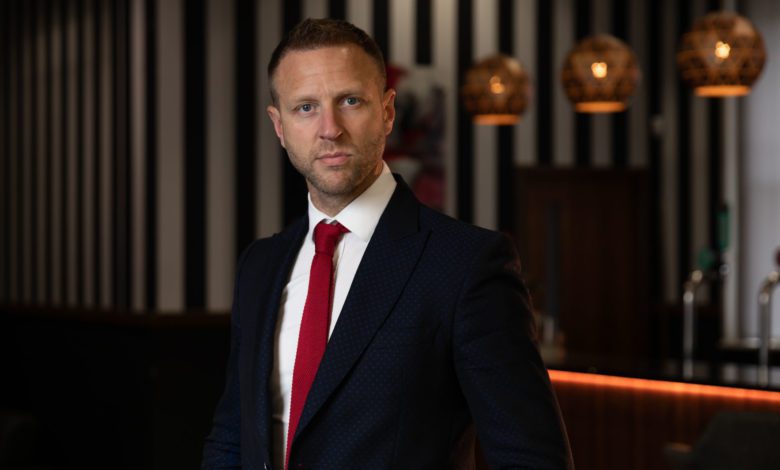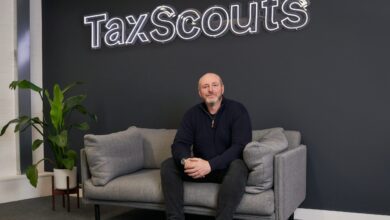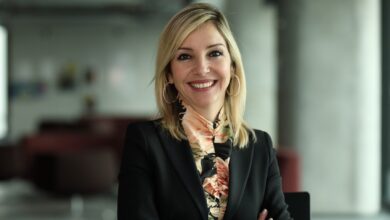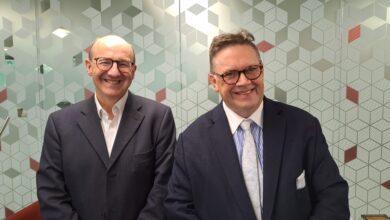How Sedulo is ‘sowing the seeds’ of international expansion
Founder of Sedulo, Paul Cheetham-Carcz, talks about the firm’s foray into a business advisory, his strategy to get Sedulo to break £15m in revenue, and tech as the future of the industry

Can you tell us about your career up to this point?
My accountancy career actually started in industry. I spent three years as a management accountant in industry while I was qualifying and then moved into a boutique practice, which is the unusual way of doing it – usually, it’s the other way around.
After that, what I noticed about the difference in those roles was: in my industry role, I was very hands-on and I had an impact in the journey that I was on with the client. When I subsequently moved from that industry role into a practice, I felt like it was a lot more box ticking and compliance-based.
So, I decided I would set up an accountancy firm (as it was back then), which would effectively offer industry tight, hands-on advisory work, but in a practice setting. That was the start of the launch, and I initially did it with a business partner, but then I went about it alone 14 years ago. We’ve since grown over those years to about 195 advisors today, so we’re in the mid-tier index now – what must be one of the fastest growing advisory firms in the UK.
How has the company turned into a business advisory firm from a strictly accountancy practice?
When I was in industry, and the guy I worked for became very successful, he would throw at me anything numbers-based as an entrepreneur and business owner. So, if it was a mortgage, or pensions, it came to me because he wanted my advice.
I began to think: how do we leverage the accountancy side, but make sure that as our clients grow, we’re able to bolt on all the different areas of a financial consultancy? All the things that a growing business needs – R&D and tax, banking, funding, wealth management, pensions, mortgages – we naturally bolt all of those on to suit the needs of our business owners’ requirements.
Then, we started to go a bit further outside of finance, because we were growing fast ourselves. We were solving problems that might have been IT problems – certainly cultural problems as well – and as we started to solve those, we started to advise our clients on sustainability. All of a sudden, we went from just advising across all financial disciplines, to bringing in IT support, people and culture, consultancy, sustainability, and then some marketing and branding, because we have to develop our own branded proposition to stand out in our own market.
Once we began to stand out in our own marketplace, we looked at some of our clients and said, “actually, we can help you stand out in your marketplace”, so these things became quite natural.
What are your day-to-day responsibilities in your current role?
Strategy, because we have a plan to double in size in the next three years. I make sure that there will be organic growth. Identifying acquisitions will be another part of that three to five-year growth strategy, in which we plan to go international. We are starting to sow the seeds of our international expansion, so I still deal with some of the high profile clients that we have, and a lot of my role is sales and marketing.
As the company looks to break £15m in revenue, what is Sedulo doing to achieve this, and why now particularly?
There’s a big opportunity in the marketplace for mid-tier firms, because lots of the larger organisations are top 10 (if you like), are starting to shed some of their ‘low hanging fruit’, organisations with less than £100m in turnover, which is actually a really meaty client for us.
We’re currently dealing with some of the clients that the top 10 firms no longer serve – and they are still substantial clients.
We have also recently appointed a CTO (chief technology officer), because I think the future of advisory is a good mix of great people and great technology. Our new CTO has also employed some developers and we’re starting to work on some in-house technologies to support our advisors. That’s another big area of growth that we see coming up.
What’s next for the company?
We want to be a top 50 firm sooner rather than later, and as I say, technology now plays a huge part in what we’re about to do. We’re developing business tools and a business platform, which is almost a credit rating for your business. From that, there are various tools, some of which are non-financial, such as a weekly happiness score for all of our clients and staff. As a result of that, we’ve seen a massive increase in the happiness of our staff, because we’ve been able to identify those that, for whatever reason, are unhappy to support them.
We’re starting to build tools like that, that are not necessarily directly financially impactful, but certainly (obviously) are indirectly impactful. We have six tools that are coming out at the end of this year that will be our first move into the SAS-based part of our business.
We will also focus on conducting more audits; we’ve grown the team dramatically in the last 12 months, with most of our recent hires coming from Big Four organisations. Through these hires, we have moved up the food chain to work with bigger clients, particularly on the audit side. We’re probably going against the grain here, because a lot of people are shedding audit clients, while we’re looking to grow that area significantly.
Finally, we might also look into an acquisition in Scotland and maybe the South-West somewhere. Beyond that, we are looking beyond those two acquisitions to do an international expansion.









